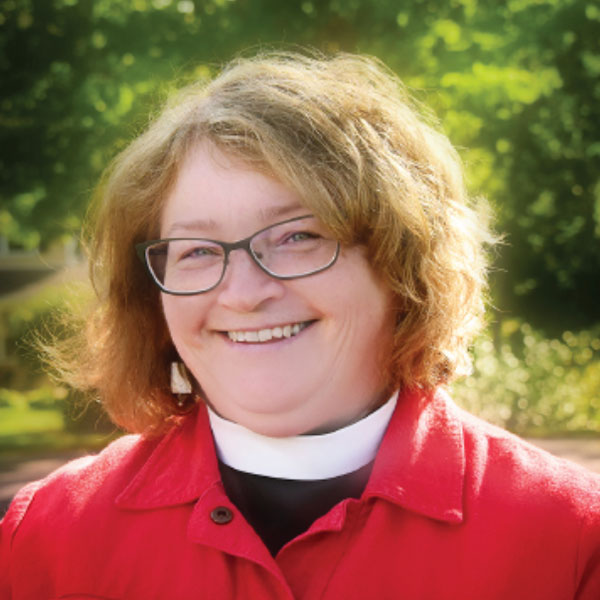“To live in hearts we leave behind is not to die.”
Many years ago I discovered that line from the poem “Hallowed Ground,” by Scottish poet Thomas Campbell. It often found its way into words of greeting or a homily I’d offer at a funeral. These words became part of how I talked about the sacred act of remembering; about what it means to have shared life with another person. However, one day I attended a family funeral on the eastern shore of Nova Scotia. Afterwards, I took time for a pilgrimage through the church cemeteries where other relatives were buried. On the headstone of my maternal grandfather, who died long before I was born, I was surprised to see that same inscription from Thomas Campbell’s poem. Suddenly this grandfather who I had never known became very real to me. It might sound silly, but those eleven words forged a bond between us. We were connected across time and space.
This is what the act of remembering has the power to do: it can bind us to those who have gone before us, even those with whom we’ve had no direct personal contact. It can remind us that we are deeply and profoundly connected to one another, not only in life, but even beyond life.
Remembering can also challenge us to live differently in the world. As more and more remains were uncovered of children who had died while attending Indian Residential Schools, we grieved for those who had never returned home, and we grieved with their families. As we heard some of their stories and as our country observed its first National Day for Truth and Reconciliation on September 30th, we were called to remember with repentance what had been done in the name of God and the Church, and to commit ourselves to walk in a good way along the path of reconciliation with all our relations.
The Calendar of the Church Year also bears witness to the importance and power of remembering. If you open The Book of Common Prayer or The Book of Alternative Services, near the front you’ll find a calendar commemorating not only important dates, but also a variety of individuals. Some of the names you read will be familiar – the apostles who journeyed with Jesus, for instance, or the saints we’ve come to learn about over the years, like St. Francis, or others after whom some of our churches are named perhaps. Some names may not be familiar to you at all.
While I was training for ordained ministry at Queen’s College in St. John’s, NL, we would observe some of these commemorations and holy days and hear some of these stories when we gathered for daily worship. We remembered martyrs – young and old – who had sacrificed their lives for the good of others (and sometimes endured the most gruesome of tortures). We remembered witnesses who had pointed others to Christ. We remembered those who, while they sounded more like scoundrels than saints, had nonetheless managed to do something of lasting good for the Church or the Christian faith. Each story said something about the incredible potential and yet the unmistakable frailty of every human life — and we remembered them all. Those whose names are unknown, or whose names have been lost to the mists of time, are still remembered during the Feast of All Saints, just as all of our departed loved ones are remembered on All Souls’ Day, and those who’ve given their lives for the cause of peace and freedom are called to mind on Remembrance Day and Remembrance Sunday.
We are a people who are called to remember.
In the spiritual practice of remembering, we reconnect across space and time. However, this is not simply an act of nostalgia, a longing for what used to be. A friend reminded me of the words often used in Jewish rites of commemoration: “may their memory be a blessing.” These words remind us of the sacredness of human life and the blessing each life continues to impart. As we enter a month in the Church year that is filled with opportunities for remembrance, may we experience that blessing that remains, a blessing that enriches our lives and calls us to live faithfully and bravely, that in time our memory may be a blessing to others.



